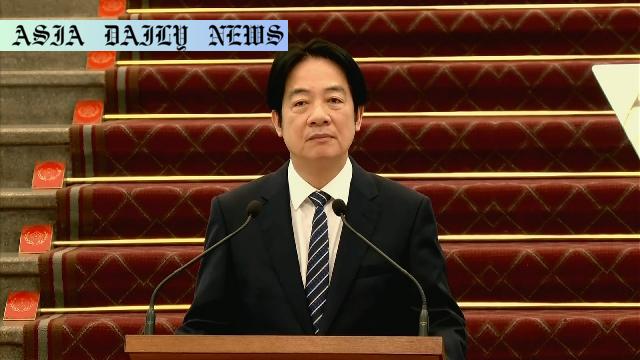Taiwan Defense – Taiwanese President vows stronger defense capabilities and cooperation after a challenging year in office.
Taiwanese President Lai Ching-te celebrates a year in office.
He pledges to boost Taiwan’s defense while promoting peace with China.
Cooperation with international partners is emphasized.
Public approval rating stabilizes after earlier drops.

Lai Ching-te’s Democratic Vision Coinciding with Defense
President Lai Ching-te of Taiwan marked his first year in office by reiterating his dedication to the principles of democracy and freedom. Speaking to reporters in Taipei on Tuesday, the President made it clear that his administration remains undeterred in its mission to safeguard the island’s independent and democratic way of life. This resolve is critical amidst growing military threats from mainland China, who has significantly bolstered their military drills and incursions into Taiwan-adapted airspace.
Highlighting the importance of enhanced defense infrastructure, Lai underscored that “aggressors are the ones who destroy peace,” referring to Beijing’s military maneuvers and political aspirations to unify Taiwan with the mainland. This approach signals an era focused on resilience, peace through strength, and bridging what could be a politically trepidacious future. Importantly, the President seeks to execute a defensive policy that fosters unity domestically while reconciling issues with Beijing on fair terms of equality and mutual respect.
Reaching Across Aisles Amid Criticisms
With a polarizing political environment in the Taiwanese legislature, Lai extended an olive branch by advocating for bipartisan cooperation between his ruling Democratic Progressive Party and opposing factions. Positioned as a show of goodwill and belief in safeguarding collective interests, this symbolic act looks to consolidate greater resources to protect Taiwan’s sovereignty better. To this end, the integration of domestic security intelligence and strategizing reinforces preparedness across political leanings.
Yet, challenges remain, reflected in Lai’s faltering popular approval — which, now steady at 45.7%, falls short of the inaugural record. Despite fewer favorable numbers revealed by the Public Opinion Foundation survey, this juncture introduces optimism rather than decline—proving that proactive leadership policies shape sentiment.



Commentary
undefined